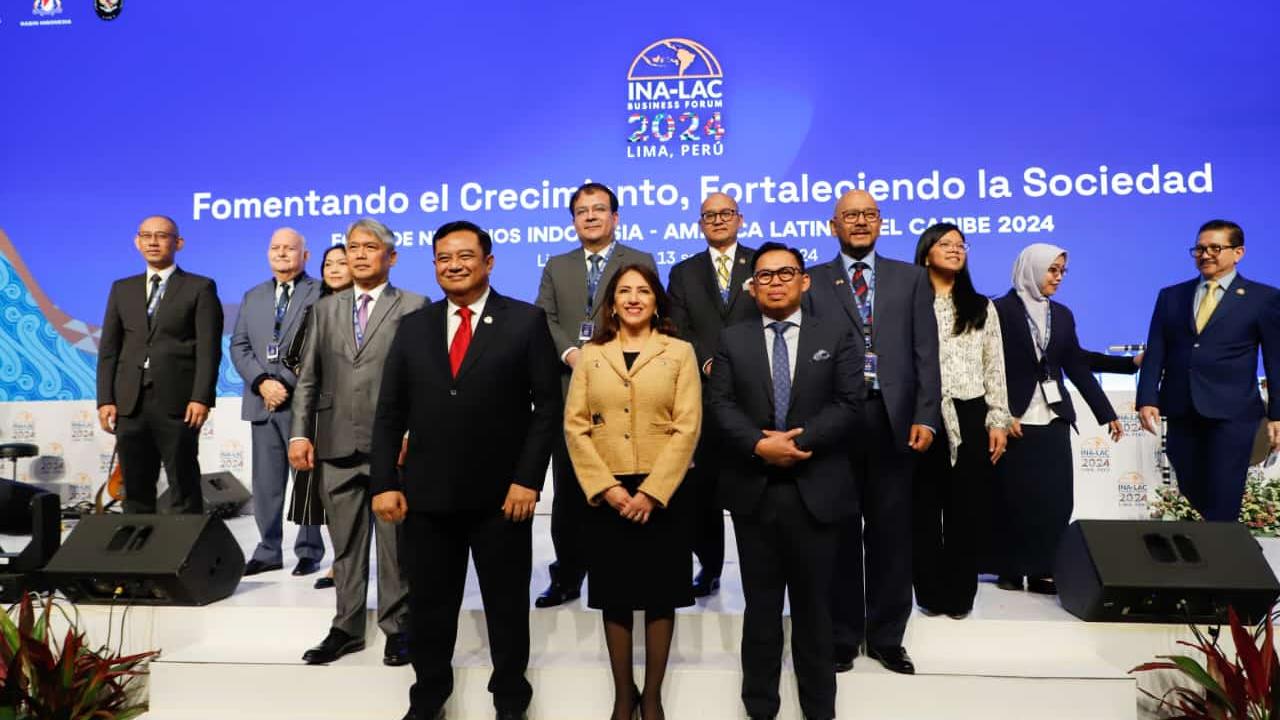
Umar Hadi, the Asian country's deputy minister for American and European affairs, also wants to position palm oil, footwear and auto parts in the Peruvian market.
Indonesia, the fourth most populous country in the world and home to outstanding biodiversity in Southeast Asia, is still struggling to position itself as an attractive market for Latin American authorities and businessmen. To achieve this goal, since 2019, the government of the former Dutch colony has organized the Indonesia-Latin America and the Caribbean Business Forum (INALAC).
In this 2024 edition, which will be organized this month in Lima, Peru, exports of palm oil and sports shoes, as well as a young population accustomed to consumption will be some of the Asian nation's calling cards.
“When we talk about business, we also think of the abundance of natural resources, among others. But we must not forget the digital economy and this is where youth plays an important role in developing new ideas,” said Umar Hadi, Indonesia’s Deputy Minister for American and European Affairs, during the presentation of the event.
Hadi later stressed that the aim of the Fair is not only to promote alliances between the Indonesian and Latin American private sectors, but also to accelerate negotiations to approve trade agreements. For example, in November, within the framework of APEC 2024, Peru is expected to sign a Free Trade Agreement with Indonesia. The vice minister also stated that negotiations will soon begin to finalize a trade agreement with Mercosur.
However, there is a long way to go to build a meaningful relationship between Jakarta and Latin America, as Hadi regrets that trade only amounts to 0.45% of the total. Among this small group of exports, Indonesia usually sells motorcycles and cars assembled in the country such as the Toyota Alphard, a common model in taxis. Regarding imports, the deputy minister highlighted the importance of Latin American wheat, especially for the manufacture of instant noodles, widely consumed in the Asian country.
During the opening ceremony, Hadi highlighted the Indonesian government's strategy for organizing the event, which focused on virtual meetings with Latin American businessmen, alliances with the Chambers of Commerce of countries such as Peru, Chile and Mexico, in addition to the use of Business Pitching , a technique to present business ideas in a concise manner to potential investors or clients.
“We want business relations between Indonesia and Latin American and Caribbean countries to go beyond business transactions. We want to grow sustainable relations to expand the existing cordial relations between Indonesia and their countries. Therefore, this mission is not only about business, but also about cultural exchange,” Hadi said.
Hadi also expressed his hope that the future FTA between Jakarta and Lima could boost the competitiveness of Indonesian goods such as palm oil, auto parts, footwear, electronic components and even wooden furniture in the Peruvian market.
However, perhaps the most important business opportunity between the two countries is the production of batteries for electric vehicles. The reason is simple: Peru is one of the largest exporters of copper in the world and Indonesia is one of nickel. We are talking about two key inputs in the development of electromobility. Given this scenario, the vice minister remains optimistic about the significant boost that battery factories have had in Indonesia in recent years.
“The first factory is already up and running in Indonesia. It produces ten-gigawatt batteries on the outskirts of Jakarta and is a joint project between Hyundai and LG to promote electric vehicles. There are three other factories in the planning stage and in fact, the fourth will be ready to produce electricity on its own. Because now the new energy needs come from solar panels,” Hadi told AméricaEconomía .
The Indonesian government spokesman reaffirmed that the most important components in lithium battery technology are nickel, manganese and copper. The latter is vital for the manufacture of cables and components. On the other hand, when referring to the commercial relationship between Peru and Indonesia, Hadi said that the exchange is around US$ 450 million. He does not know for sure what the current status of the FTA negotiations is, but he estimates that it is at 70 or 80%, with the aim of finalizing it by the end of 2024.









